Butter is a beloved and versatile ingredient that has graced countless recipes with its rich, creamy goodness. However, there are times when you might need a butter substitute, whether due to dietary preferences, allergies, or simply because you've run out of this kitchen staple. But fear not, for the culinary world is full of alternatives that can step in for butter and bring their own unique qualities to your dishes.
In this post, we will discover the best butter substitutes that can add flavor, moisture, and richness to your cooking, just like butter does. From olive oil to avocado and beyond, we'll uncover the possibilities and guide you on when and how to use these butter alternatives to achieve culinary success.
The 15 Best Butter Substitutes For Every Recipe
Olive Oil

Thanks to its versatility and health benefits, Olive oil is one of the best butter substitutes. When it comes to cooking and baking, olive oil offers a unique combination of heart-healthy fats and a distinctive fruity flavor.
For dishes that involve sautéing or frying, butter can be substituted with olive oil in an equal one-to-one ratio. Olive oil's robust flavor enhancers savory dishes like vegetables, pasta, and meats, and its high smoke point ensures it won't burn easily.
Olive oil is a superb choice for baking when a slightly fruity note complements the recipe. It is particularly well-suited for cakes, muffins, and bread. When replacing butter, utilize 3/4 cup of olive oil for every cup of required butter. Additionally, consider choosing extra virgin olive oil for a more pronounced flavor or light olive oil for a milder taste, depending on your preference.
Coconut Oil

Image by jcomp on Freepik
Coconut oil stands out as an impressive butter alternative. It's renowned for its distinctive tropical taste and many health advantages. It's an excellent choice for those seeking a dairy-free or vegan alternative in their cooking and baking.
In baking, coconut oil works exceptionally well in recipes that pair well with its distinct, rich flavor, such as coconut macaroons or tropical-themed desserts. To use as a butter substitute, follow a 1:1 ratio. If you desire a more subdued coconut flavor, choose refined coconut oil.
When substituting butter with coconut oil, it's crucial to note that it solidifies at room temperature, making it an excellent choice for recipes that necessitate solid fat. Use coconut oil in equal parts as a butter substitute for sautéing, frying, greasing pans, and baking like chocolate chip cookies and banana bread. The mild coconut fragrance of coconut oil has the potential to elevate the flavor of both sweet and savory dishes, ranging from curries to cookies.
Avocado Oil
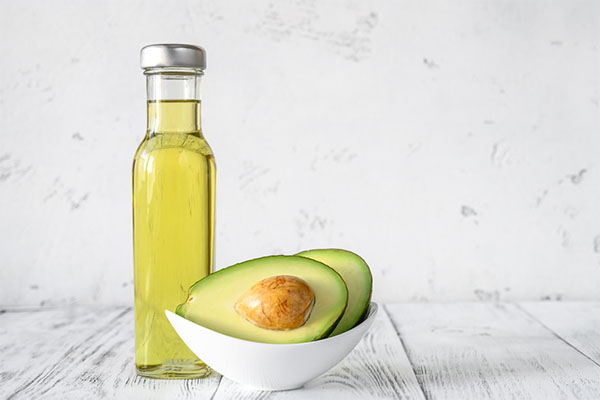
Avocado oil is a fantastic melted butter substitute known for its mild, buttery flavor and numerous health benefits. It is rich in heart-healthy monounsaturated fats and offers a creamy texture, making it an excellent choice for replacing butter in various culinary applications.
When a recipe calls for butter, you can use avocado oil as a substitute for a one-to-one swap. Whether you're sautéing vegetables, frying, or baking cookies, the subtle taste of avocado oil won't overshadow other ingredients, enabling the flavors of your dishes to stand out. It's particularly well-suited for recipes with a subtle, buttery essence without the dairy, like baking cookies or stir-frying, like pad thai.
Fresh Avocado

Mashed avocado has become a popular and nutritious alternative to butter in recent years, thanks to its creamy texture and healthfulness. You can typically substitute it for butter in a one-to-one ratio.
One of the key advantages of using mashed avocado is its nutritional profile. Avocados are rich in heart-healthy monounsaturated fats, fiber, vitamins, and minerals. Additionally, they impart a delightful green color to your dishes, enhancing their visual appeal. The flavor of mashed avocado is subtle and slightly nutty, making it versatile for both sweet and savory recipes.
Mashed avocado is an excellent choice for baking, especially in recipes for brownies, banana bread, muffins, and cookies. It contributes moisture to baked goods while decreasing saturated fat content compared to butter.
Full Fat Greek Yogurt
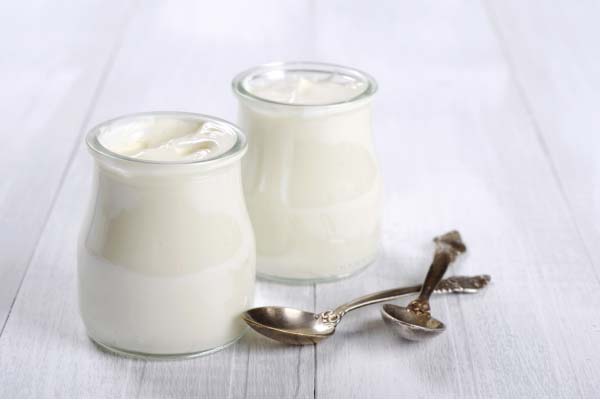
Greek yogurt is a great butter substitute known for its tangy flavor and creaminess. You can generally substitute Greek yogurt for butter in baking in a one-to-one ratio. For instance, if a recipe requires one cup of butter, you can substitute one cup of Greek yogurt.
Using Greek yogurt comes with significant nutritional advantages. It is rich in protein, probiotics, and essential nutrients, all while having lower saturated fat content than butter. This makes it an excellent option for individuals aiming to decrease their fat intake while introducing a creamy element to their dishes.
Greek yogurt works wonderfully in both sweet and savory recipes. In baking, it contributes moisture and imparts a subtle tang to items such as cakes, muffins, and pancakes. It can also be used as a base for creamy salad dressings, dips, and sauces, providing a delightful creaminess without the need for butter.
Nut Butters
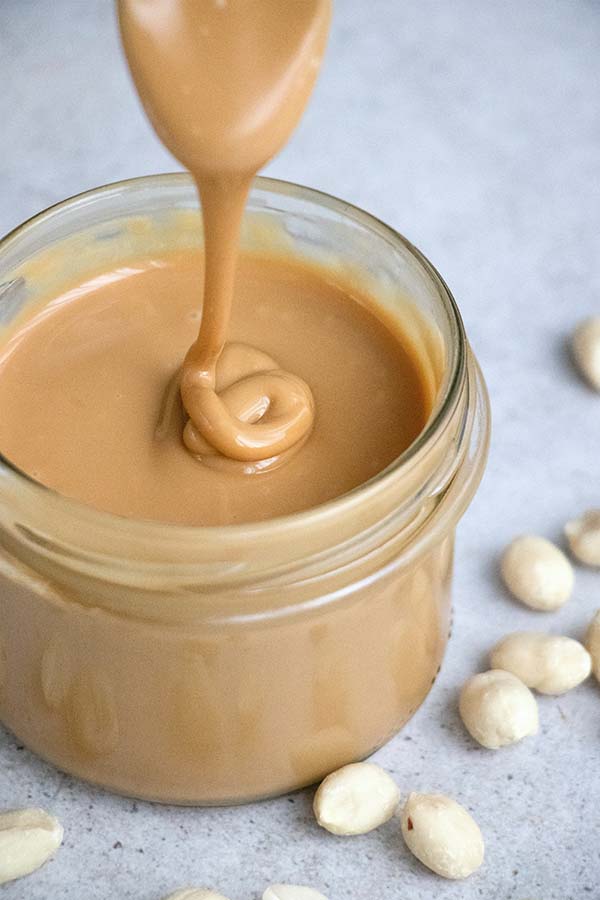
Nut butters, including almond butter, peanut butter, and cashew butter, are fantastic substitutes for conventional butter, particularly for individuals desiring a more indulgent flavor experience. When substituting nut butter for butter in recipes, a general rule of thumb is to use a one-to-one ratio, similar to Greek yogurt. For instance, suppose a recipe specifies one cup of butter; in that case, you can substitute it with an equivalent amount of your favorite nut butter.
The appeal of nut butter lies in its robust taste and nutritional value. It is nutritious and packed with beneficial fats, protein, and vital vitamins and minerals. The specific flavor of each nut butter can also add a delightful twist to your dishes, from the earthy notes of almond butter to the nutty richness of peanut butter.
Demonstrating versatility, nut butter excels in both sweet and savory culinary creations. They prove instrumental in crafting luscious sauces and salad dressings and can serve as delightful spreads for sandwiches and toast. They lend a unique depth of flavor and moisture to cookies, brownies, and energy bars in baking.
Unsweetened Applesauce
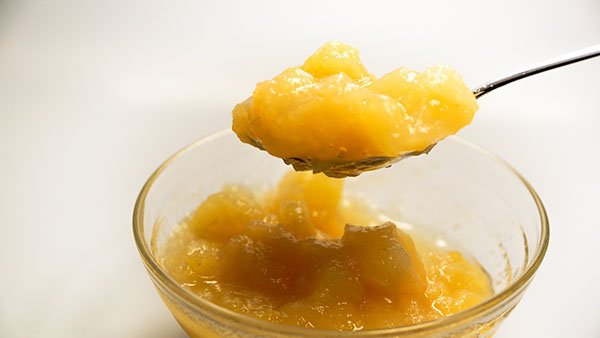
Unsweetened applesauce is an exceptional butter substitute, particularly for those looking to reduce their fat intake or enhance the natural sweetness of their baking recipes. When a recipe calls for butter, you can typically replace half or more of the butter with an equal amount of applesauce.
One key advantage of using unsweetened applesauce is its ability to add moisture and a subtle apple flavor to your dishes without the need for added fats. It works particularly well in baking and can be used in recipes for muffins, carrot cake, and quick bread, resulting in moist and tender treats.
Additionally, unsweetened applesauce stands out as a healthier alternative. It boasts naturally low calorie and fat content, along with essential vitamins and dietary fiber. This makes it a superb option for individuals aiming to cut down on calories or tailor recipes to meet specific dietary requirements.
Buttermilk

Buttermilk is a remarkable melted butter substitute with a unique tangy flavor and exceptional moisture-retaining properties in various recipes. When it comes to replacing butter, especially in baking, buttermilk shines as an excellent choice. The substitution ratio typically involves using 3/4 cup of buttermilk for every one cup of melted butter. Making this substitution might necessitate minor adjustments to the recipe to ensure the desired consistency is maintained.
One of the standout features of buttermilk is its ability to keep baked goods exceptionally moist. Its slightly acidic nature tenderizes gluten in dough and enhances leavening agents like baking soda, resulting in light and fluffy textures. It's particularly popular in making pancakes, biscuits, and cakes.
Buttermilk's tangy taste also adds a pleasant flavor to dishes, making it an excellent option for sweet and savory recipes. Its versatility extends beyond baking and includes salad dressings, marinades, and even fried chicken batter.
Mashed Bananas
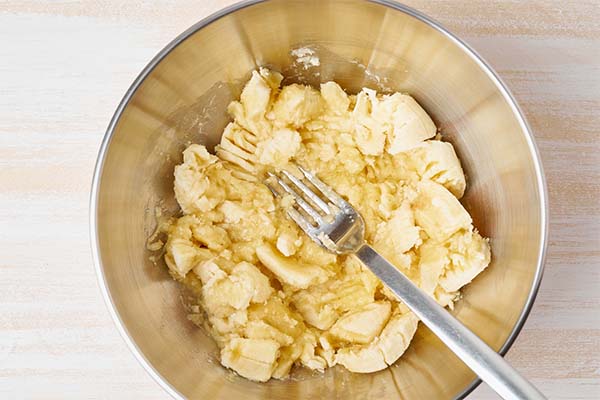
Mashed bananas offer a delightful and nutritious twist as a butter substitute in various recipes. Mashed bananas' sweetness and creamy texture make them an outstanding choice, particularly in baked goods. When using mashed bananas as a butter replacement, a common ratio is one cup for every cup of butter. However, it's important to note that this substitution may impart a mild banana flavor to the final dish, which can be a delightful enhancement in many recipes.
One of the standout features of mashed bananas is their ability to add moisture and richness to dishes, similar to butter. They are particularly well-suited for baking, contributing to a soft and moist texture in muffins, bread, and cakes. Furthermore, mashed bananas offer a healthier alternative, supplying essential nutrients such as potassium and dietary fiber.
Tofu

Tofu, with its neutral flavor and creamy texture, is an excellent butter substitute, particularly in vegan and health-conscious cooking. When using tofu as a butter replacement, you can typically replace butter with an equal amount of blended silken tofu. This substitution works well in various recipes, from creamy sauces and salad dressings to baked goods like brownies and muffins.
Tofu stands out as a butter substitute due to its noteworthy nutritional profile. Serving as a valuable source of plant-based protein, tofu also boasts essential nutrients such as calcium and iron. Moreover, it is markedly lower in saturated fats, making it a heart-healthy option. Tofu's creamy consistency allows it to mimic the richness of butter without the excess fat, making it ideal for those looking to reduce their calorie and fat intake.
Ghee Butter

Ghee, a form of clarified butter, is an excellent substitute for traditional butter in many culinary applications. This clarified butter has a rich, nutty flavor and high smoke point, making it an ideal option for sautéing, frying, and baking. When replacing butter with ghee, you can typically use an equal amount, making it a straightforward and effective substitution.
One of the key advantages of ghee as a butter substitute is its unique flavor profile. The flavorful and nutty essence of ghee can enhance the intricacy of your culinary creations, rendering it a favored option in Indian and Middle Eastern cooking. Moreover, ghee lacks lactose and milk solids, making it a suitable alternative for those with lactose intolerance.
With a substantial smoke point, usually hovering around 450°F (232°C), ghee proves its capability to withstand high-temperature cooking without undergoing burning or generating harmful substances. This quality makes it an exceptional option for searing meats or stir-frying vegetables.
Canned Pumpkin Puree
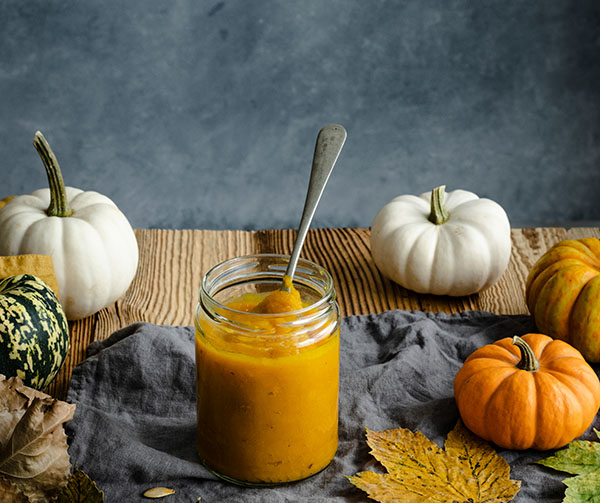
Image by rawpixel.com on Freepik
Canned pumpkin puree is a remarkable butter substitute for baking recipes calling for butter. With its smooth, creamy texture and mild, slightly sweet flavor, it can bring moisture and depth to various dishes. When substituting butter with canned pumpkin puree, you can typically replace it in a 1:1 ratio, making it a convenient and healthy alternative.
One primary advantage of canned pumpkin puree is its nutritional value. Abundant in vitamins, minerals, and fiber and boasting lower calorie and saturated fat content than butter, ghee is a preferred selection for individuals seeking healthier alternatives in their culinary endeavors.
When to use canned pumpkin puree as a butter substitute depends on the recipe and your dietary preferences. It works exceptionally well in baked goods like muffins, pancakes, and cookies, adding moisture and a subtle earthy flavor. Furthermore, it finds application in savory dishes such as soups and stews, contributing to an improved texture and enhanced nutritional value.
Heavy Whipping Cream, Creme Fraiche, Or Sour Cream
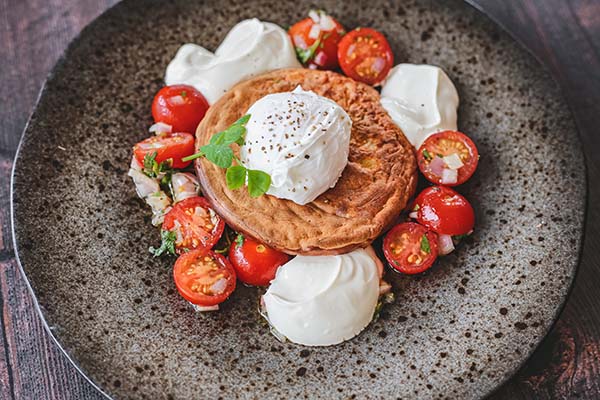
Heavy whipping cream, creme fraiche, and sour cream are excellent butter substitutes, especially for enriching sauces, soups, and desserts. These dairy products share a creamy, luscious texture and a rich, fatty flavor that can elevate the taste and texture of your dishes.
The quantity to use as a substitute for butter relies on the recipe and your dietary preferences. You can generally substitute heavy whipping cream, creme fraiche, or sour cream for butter in a 1:1 ratio. However, it's essential to consider the moisture content of these substitutes and adjust the overall liquid in your recipe accordingly.
Dairy-based alternatives like these prove especially beneficial in imparting a delightful creaminess to your culinary masterpieces. Heavy whipping cream, creme fraiche, or sour cream can bring a luxurious texture and a pleasant tang to savory dishes like pasta sauces or mashed potatoes. Indulgent desserts such as cakes and frostings deliver a velvety, irresistibly tempting richness.
Cream Cheese
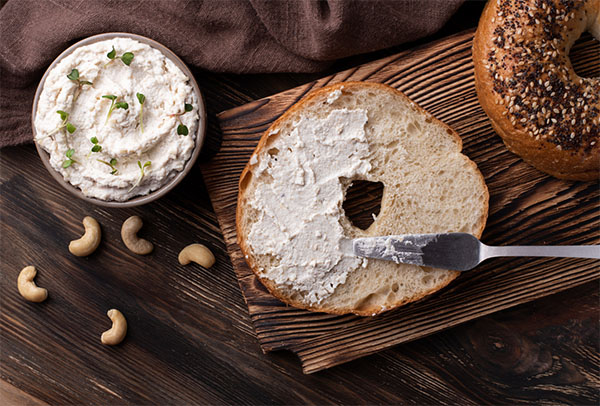
With its rich flavor and creamy consistency, cream cheese stands out as a versatile substitute for butter in various dishes. It offers a similar richness and adds a unique tang to recipes. Its higher moisture content and lower melting point can lend a soft, tender texture to baked goods, making it especially suitable for cakes, cookies, and frostings with a rich, creamy quality.
When replacing butter with an alternative, use three-quarters of the suggested butter quantity to reduce the risk of overly moist outcomes in your recipes. This substitution is ideal in recipes where a slightly tangy flavor can enhance the overall dish, such as in cheesecakes or cream-based sauces.
Cream cheese works well as a spread or in frosting, where its rich flavor and texture can directly replace butter, providing a similar richness and spreadability. It can also be used in place of butter to add creaminess to sauces and fillings, though it should be added at a lower heat to prevent curdling. Its best use is in dishes where its unique characteristics can be fully appreciated, enhancing flavor and texture without compromising the dish's integrity.
Vegan Butter
Vegan butter is a suitable substitute for traditional butter because it mimics its taste and texture while being plant-based. It's made from a blend of oils like coconut, olive, or avocado and often includes water, salt, and emulsifiers to achieve a butter-like consistency.
Vegan butter is an excellent 1:1 substitute for traditional butter in all culinary uses, from baking and cooking to spreading. This makes it a perfect choice for individuals with dairy restrictions, lactose intolerance, or those adhering to a vegan lifestyle. Its use enhances flavor in dishes without the saturated fat and cholesterol found in animal-based butter. Best utilized in baked goods, sauces, and as a spread, vegan butter provides a health-conscious alternative without compromising on taste or texture.
Not My Favorite
Vegetable Oil
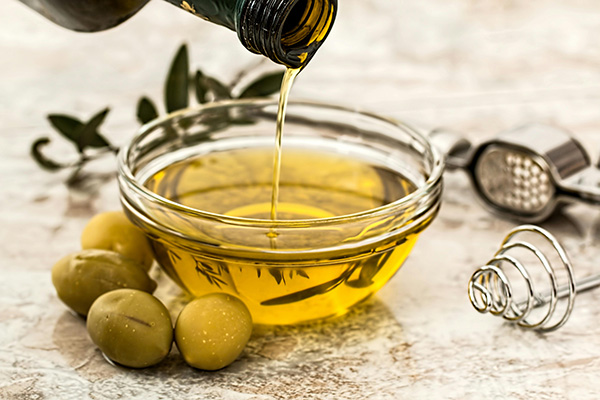
Vegetable oil can be a great butter alternative in baking and cooking due to its neutral flavor and ability to create a moist texture. It's often used in recipes to make them dairy-free and to achieve a lighter crumb in cakes and bread. However, health concerns arise with vegetable oil, particularly due to its high omega-6 fatty acids and potential for containing trans fats, which can contribute to heart disease and inflammation if consumed in excess.
Canola Oil
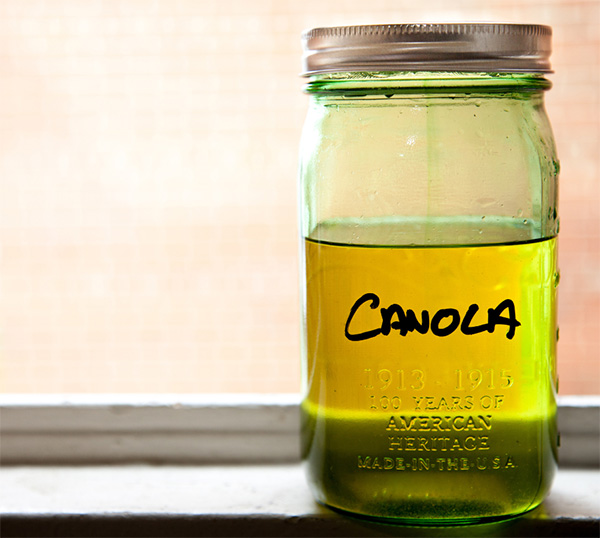
Canola oil is one of the most popular butter substitutes in cooking and baking due to its neutral flavor and ability to withstand high temperatures. However, some consider it unhealthy due to its processing methods. Canola oil is often heavily processed, involving high heat and chemical treatments to refine the oil, which can lead to the formation of trans fats and the loss of nutritional value. The predominant omega-6 over omega-3 fatty acid content in canola oil may increase insulin resistance, inflammation, and related health complications.

